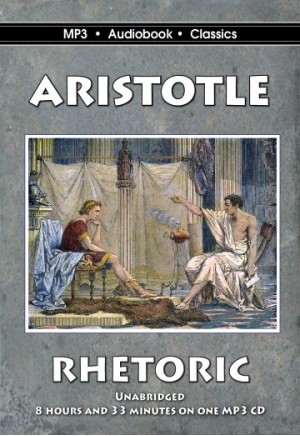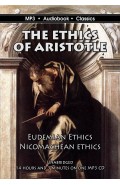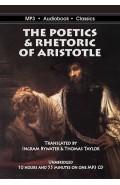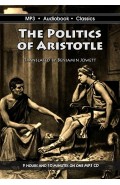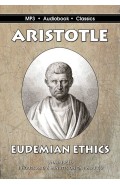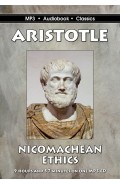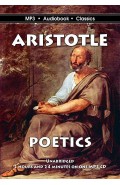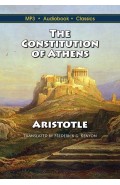| Track | Section | Length |
| 1 | 01 Rhetoric Book I Part 1 Chapters 1-5 | 57:38 |
| 2 | 02 Rhetoric Book I Part 2 Chapters 6-10 | 56:26 |
| 3 | 03 Rhetoric Book I Part 3 Chapters 11-16 | 55:12 |
| 4 | 04 Rhetoric Book II Part 1 Chapters 1-9 | 1:08:41 |
| 5 | 05 Rhetoric Book II Part 2 Chapters 10-21 | 1:02:55 |
| 6 | 06 Rhetoric Book II Part 3 Chapters 22-28 | 1:08:39 |
| 7 | 07 Rhetoric Book III Part 1 Chapters 1-10 | 1:06:07 |
| 8 | 08 Rhetoric Book III Part 2 Chapters 11-14 | 37:54 |
| 9 | 09 Rhetoric Book III Part 3 Chapters 15-19 | 37:58 |
Production
Book Coordinator: Geoffrey Edwards
Meta Coordinator: TriciaG
Proof Listener: Leni
Artwork
Cover: Aristotle teaching Alexander the Great, 1866, engraving by Charles Laplante,
Inset: Engraving of Aristotle by Ambroise Tardieu (1788-1841)
Insert: Detail showing Aristotle from 'St Thomas kneeling and offering his works to the Roman Catholic Church', between 1883-1887, Ludwig Seitz (1844-1908)
Rhetoric is an ancient Greek treatise on the art of persuasion still considered “the most important work on persuasion ever written”. Rhetoric is structured in three books: a general overview, a detailed treatment of the three means of persuasion, and a discussion of elements of style. It was not written for publication, but is rather a collection of student notes from his many lectures and reflects the gradual evolution of thinking about the subject over a period of sixty years. It was a hotly debated topic at the time, with the sophists on one side accused of manipulating listeners through emotion and omission of facts by the philosophers Socrates,Plato and Aristotle. Plato’s opinion of rhetoric as immoral, dangerous and not worth studying evolved over time to a moderate respect for the ability to “win the soul through discourse”. Aristotle undertook the first systematic study of the basic techniques of rhetoric during two periods, first at Plato’s Academy from 367-347 BC and then at his own school, the Lyceum, during 335-322 BC. His genius was to position rhetoric alongside logic and the dialectic as one of three key elements of philosophy. Reason was the tool to derive scientific certainty, while the other two dealt with probability, with dialectic the tool for philosophical debate and rhetoric the tool for practical debate. In doing so he elevated the discipline to a system for persuasion based on knowledge instead of manipulation. One cannot fail to be illuminated and find much of use in this first book on the subject which may well also be the last word.
Play sample:
Download a PDF datasheet
| Item Info | |
| EAN - DVD case | 0701236969986 |
| Media | MP3 CD |
| Package | DVD Box |
| Author | Aristotle (384 BC - 322 BC) |
| Translator | Thomas Taylor (1758-1935) |
| Year | 367-347 BCE, 335-322 BCE |
| Recording | |
| Read by | Geoffrey Edwards |
| Length | 8 hours 33 minutes |
| Type of Reading | Solo |
Rhetoric
- Author: Aristotle
- Product Code: DB-1278
- Availability: In Stock
-
$9.99
Available Options
Related Products
The Ethics of Aristotle
Aristotle coined the term “ethics” to define a field of study first undertaken by Socrates and Plato..
$11.99
The Poetics and Rhetoric of Aristotle
Poetics and Rhetoric together with Ethics and Politics constitute the pillars of Aristotle’s Practic..
$11.99
The Politics of Aristotle
Aristotle’s Ethics describes the means to the happy life of virtue intended by nature. In Politics h..
$11.99
Eudemian Ethics
Aristotle coined the term “ethics” to define a field of study first undertaken by Socrates and Plato..
$9.99
Nicomachean Ethics
Aristotle coined the term “ethics” to define a field of study first undertaken by Socrates and Plato..
$9.99
Poetics
Poetics is the earliest known work that develops a theory of drama and related literary forms. His ..
$7.99
The Constitution of Athens
The Constitution of Athens is a document attributed to Aristotle that describes the political system..
$9.99

